Poems, Chiefly Scottish
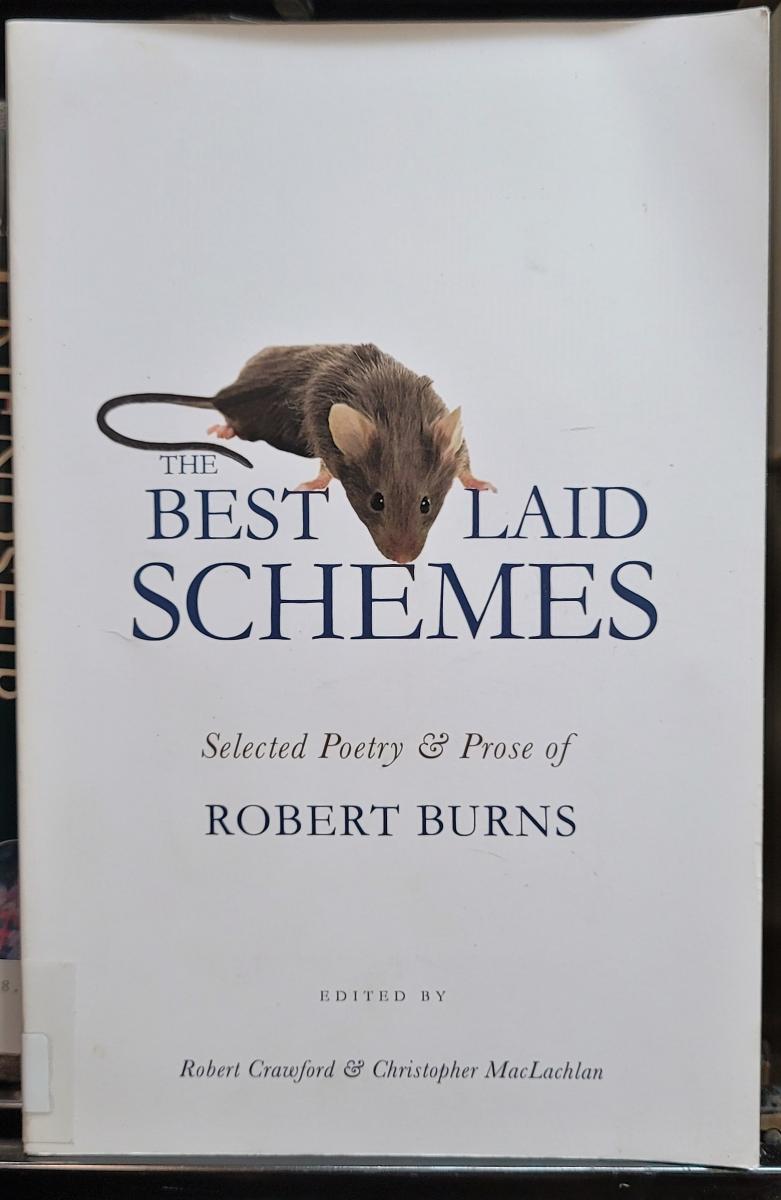 January 25 marks the birthday of Robert Burns (1759-1796), Scotland’s best-loved poet and one known the world over. (If you’re like me, you bellowed out a badly pronounced “Auld Lang Syne” mere weeks ago.) Burns Night is celebrated annually on that date in Scotland and among Scottish folk and their friends everywhere. Burns, of course, wrote primarily in the Scots language, but his work is quite accessible to English-language readers with extra concentration and a dictionary. To help you get in the smeddum (spirit) of Burns Night, here’s a wee owersicht of (a little glance over) the Library’s many Burns-connected buiks. After all, he's just a bittie younger than our institution - and we've been collecting him - well, lang syne.
January 25 marks the birthday of Robert Burns (1759-1796), Scotland’s best-loved poet and one known the world over. (If you’re like me, you bellowed out a badly pronounced “Auld Lang Syne” mere weeks ago.) Burns Night is celebrated annually on that date in Scotland and among Scottish folk and their friends everywhere. Burns, of course, wrote primarily in the Scots language, but his work is quite accessible to English-language readers with extra concentration and a dictionary. To help you get in the smeddum (spirit) of Burns Night, here’s a wee owersicht of (a little glance over) the Library’s many Burns-connected buiks. After all, he's just a bittie younger than our institution - and we've been collecting him - well, lang syne.
If you simply want to read the poems, head straight to Stack 9 and 821 B (or consult this list first). Editions include the classic complete The Canongate Burns, edited by Andrew Noble and Patrick Scott Hogg, and The Best-Laid Schemes: Selected Poetry & Prose of Robert Burns, edited by Robert Crawford and Christopher MacLachlan and featuring the kenspeckle (famous) "wee, sleekit, cowrin, tim'rous beastie" herself.
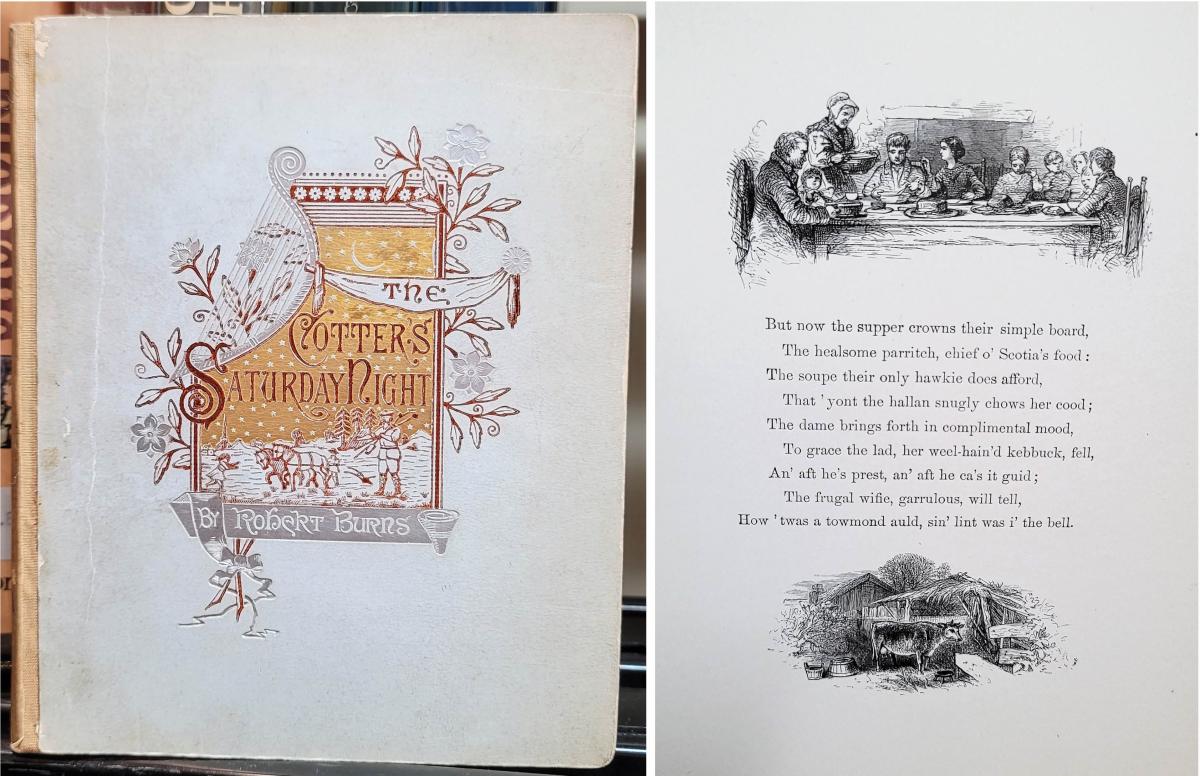
The shelves also hold this gorgeous illustrated edition of "The Cotter's Saturday Night."
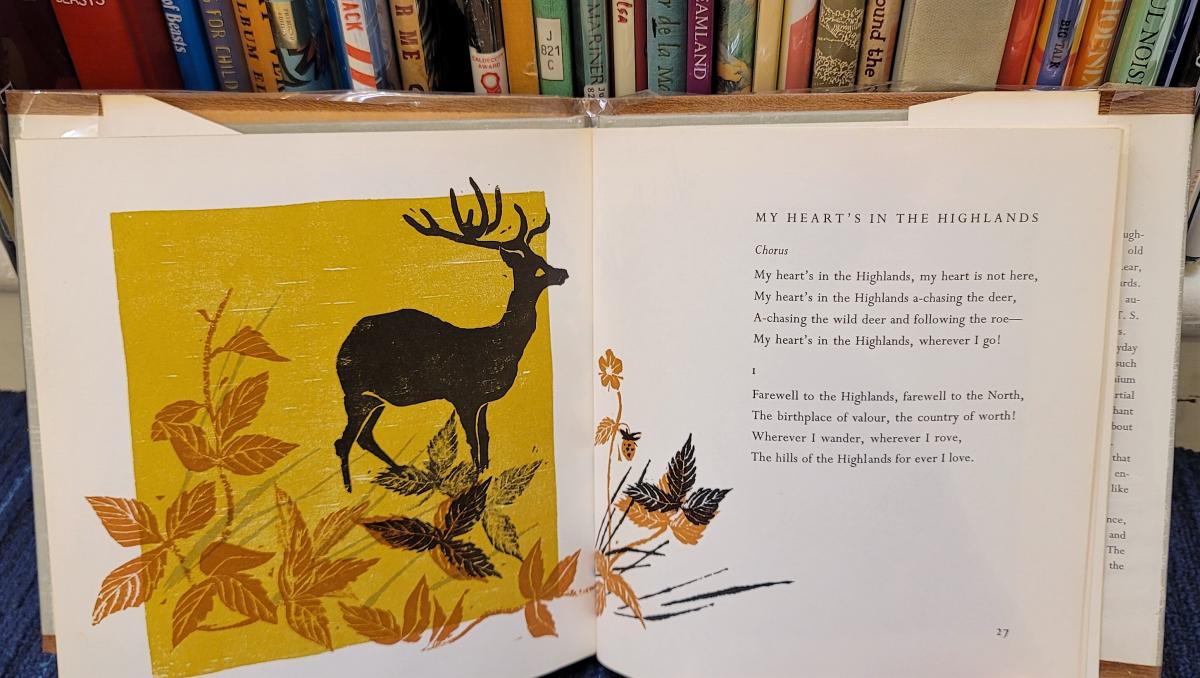
For just the quickest taste, flip through the Children's Library's Hand In Hand We'll Go, illustrated by Nonny Hogrogian. Alangside wi those, you can dive deep into A Complete Word and Phrase Corcordance to the Poems and Songs of Robert Burns, compiled and edited by J.B. Reid - and pick up a few more delicious Scots words from its glossary, like the useful muckle.
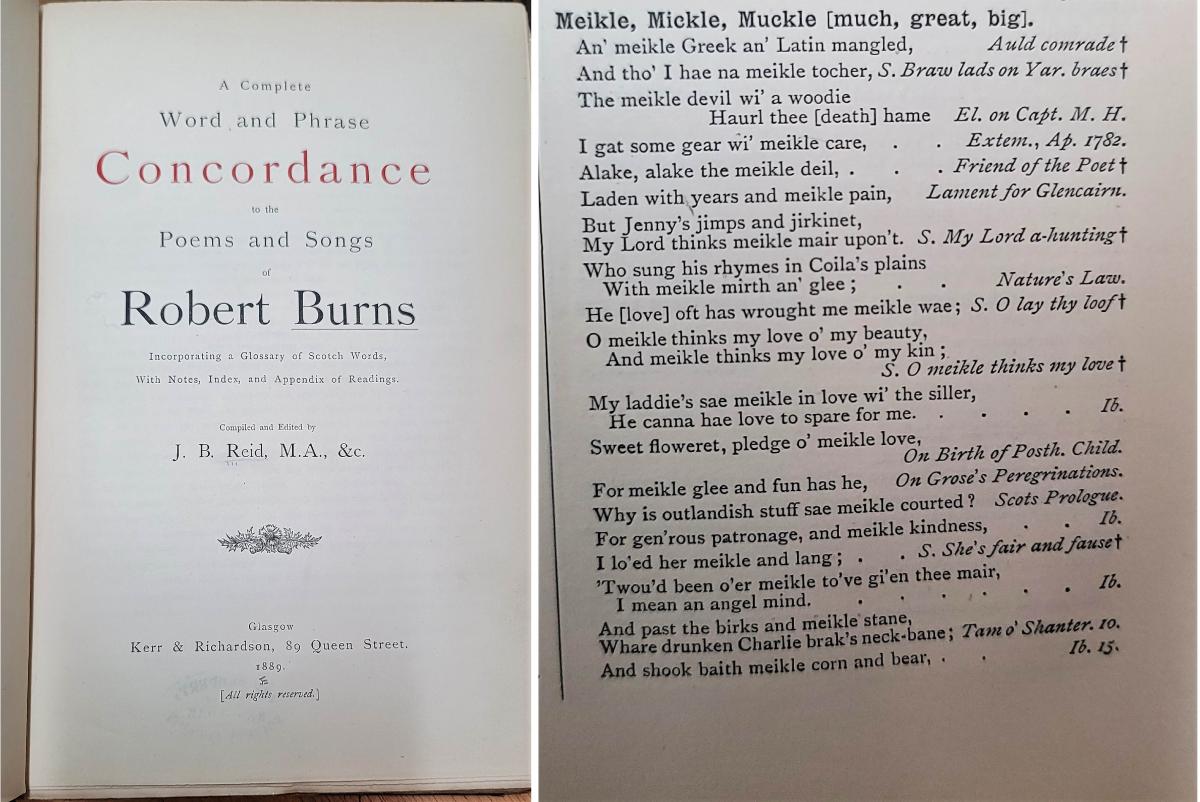
Pro tip: take the poems home and read aloud, or listen to some of the braw (beautiful) recordings online – for a start, here’s "To a Louse" read by my favorite Scottish actor, or a bit of "Now Westlin Winds" sung by the gifted Iona Fyfe.

There are biographies, letters, and tributes both to read and to admire, like this gold-leafed volume of The Correspondence Between Burns and Clarinda (a.k.a. Agnes M'Lehose).
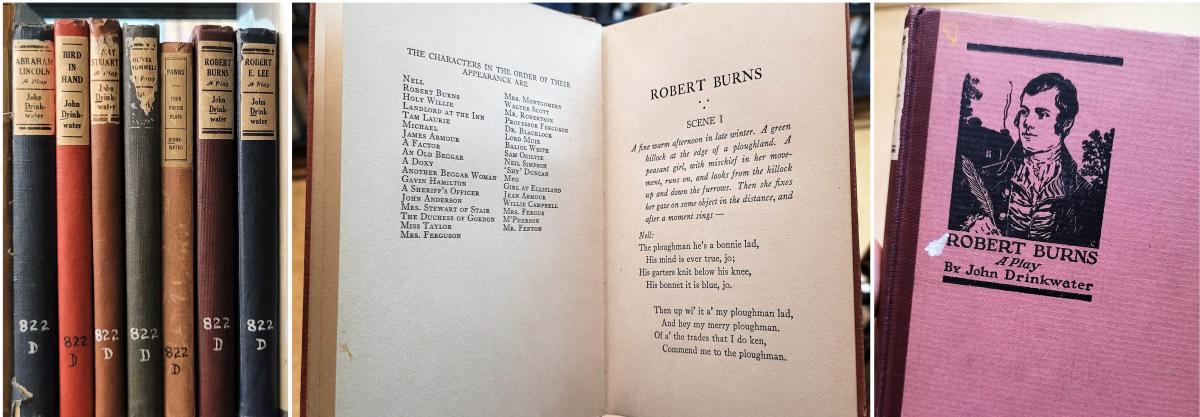
The creative "Ploughman Poet" has inspired creative endeavors across genres. John Drinkwater provides a clutch of plays about historical figures, putting Burns between Robert E. Lee and Oliver Cromwell. And these mid-20th-century novels by James Barke offer handsome map endpapers.
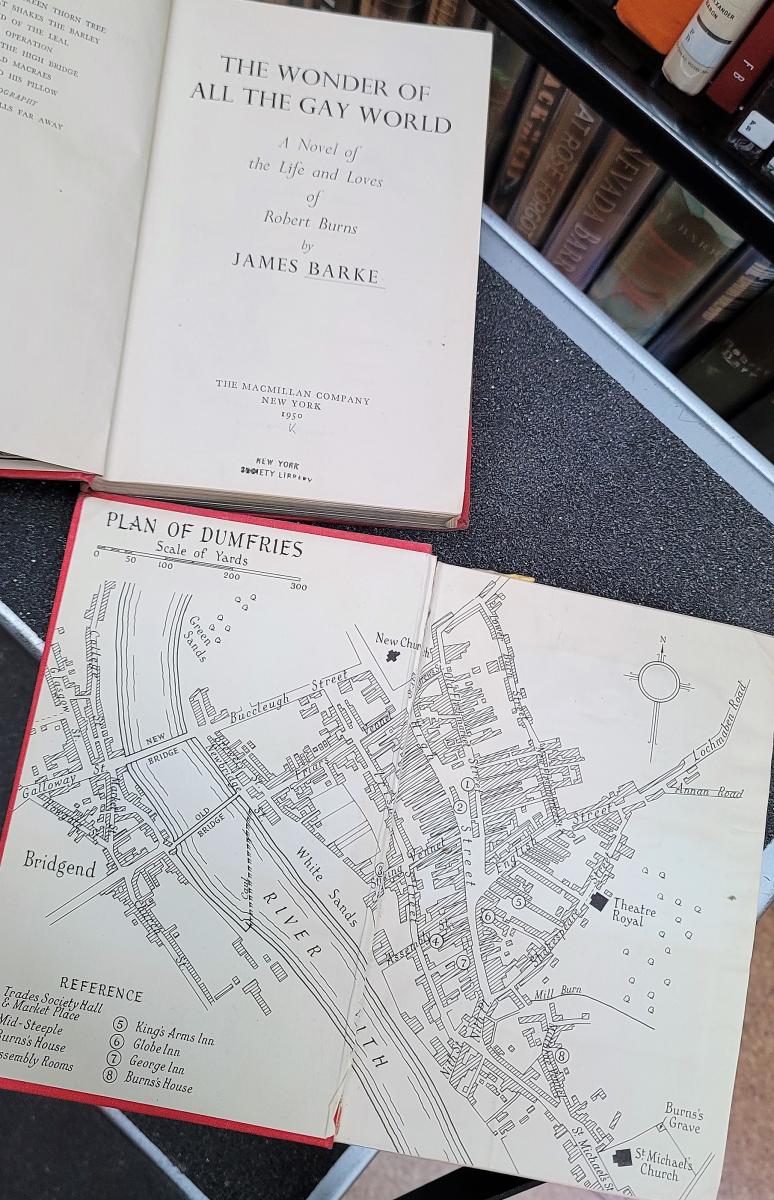
One of our special Special Collections volumes is a first Edinburgh edition of Burns'
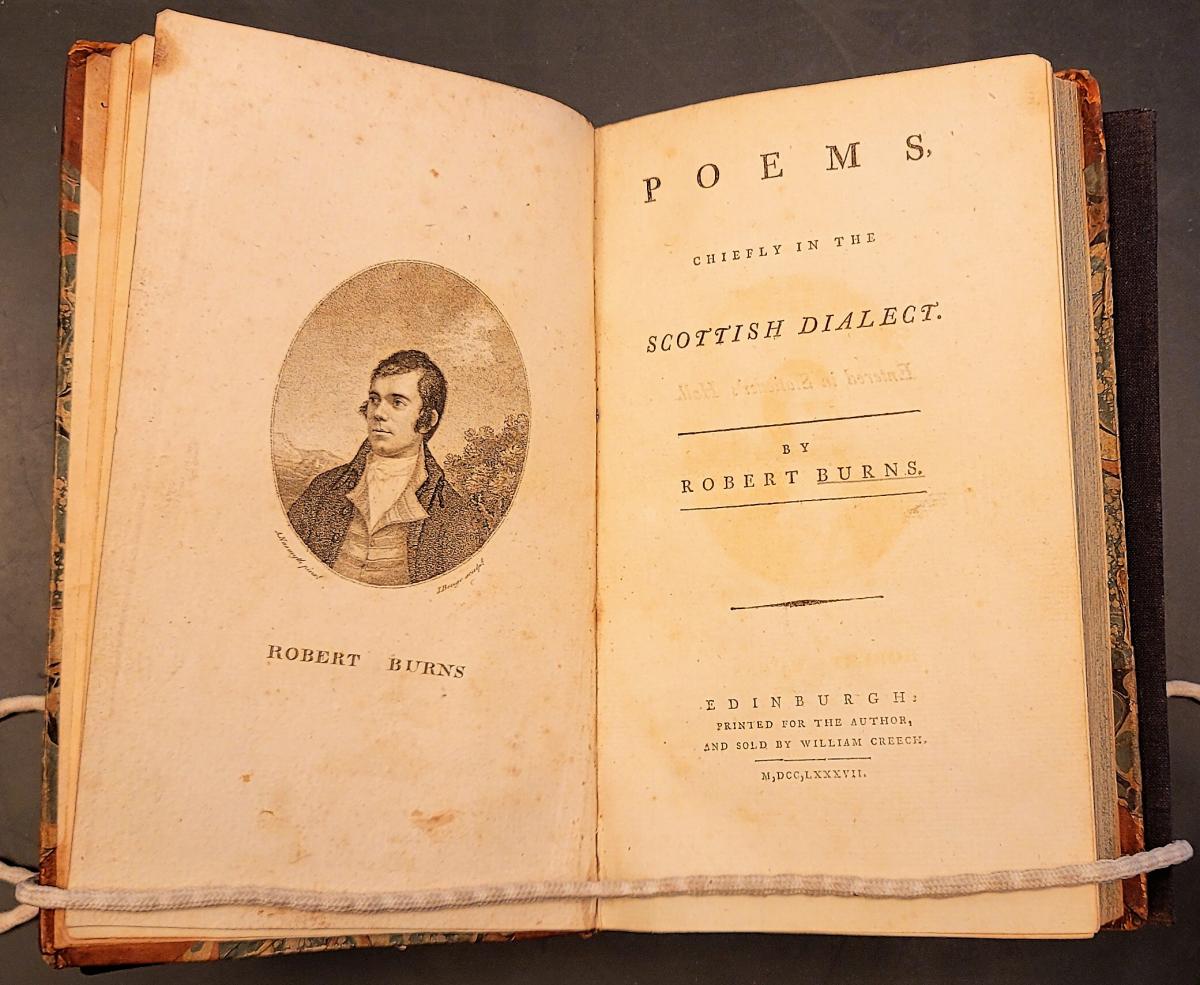
To me, just the look and texture of the ink on the page gives you a feel for Burns' time and place - as with this famous passage.
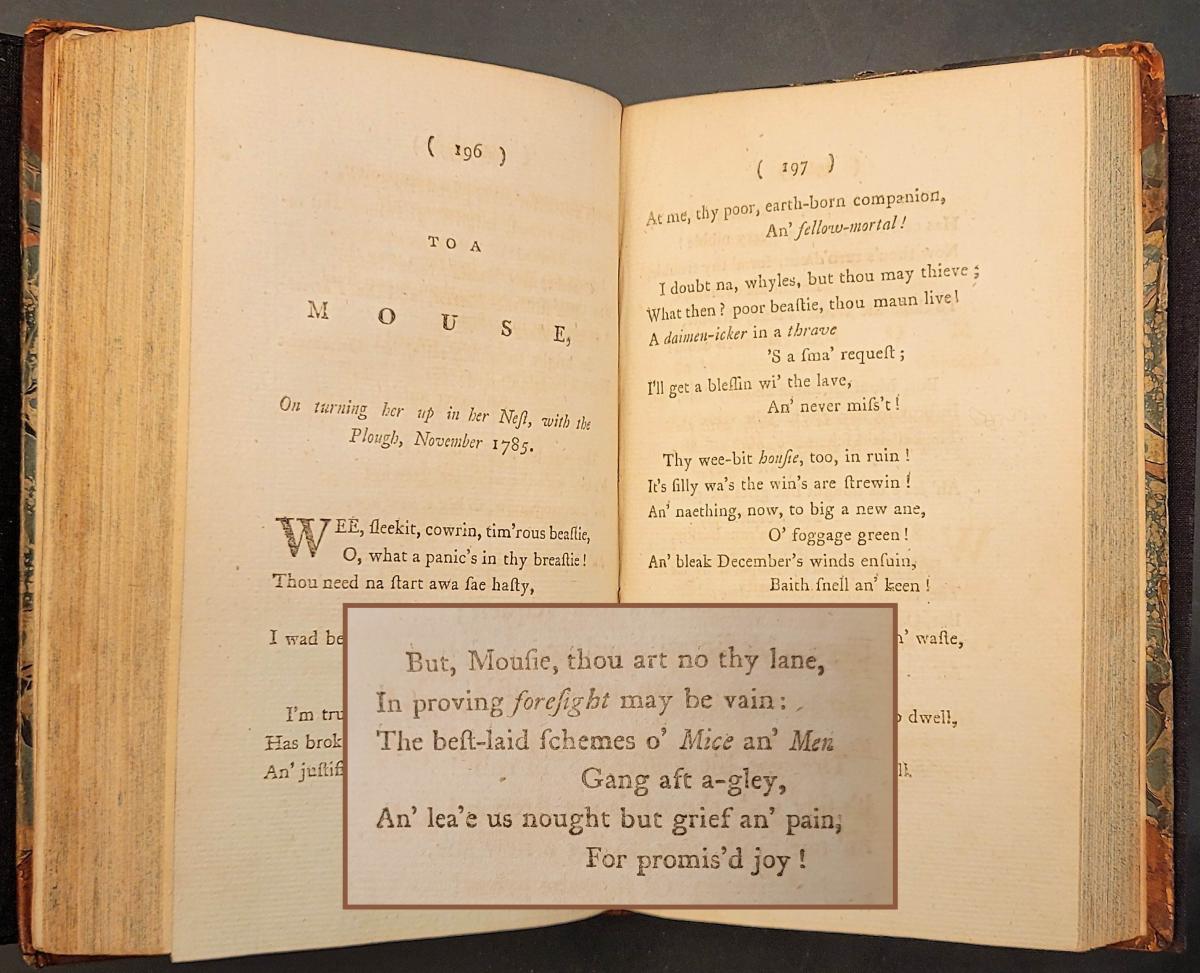
In fact, our copy is a rarity among rarities, referred to as the "stinking edition" by Burns bibliographer J.W. Egerer - not due to any quality of the book itself, I assure you, but because the close of the famous poem "To a Haggis" misprints the Scots word skinking (meaning "watery") as the common but not cognate English word:
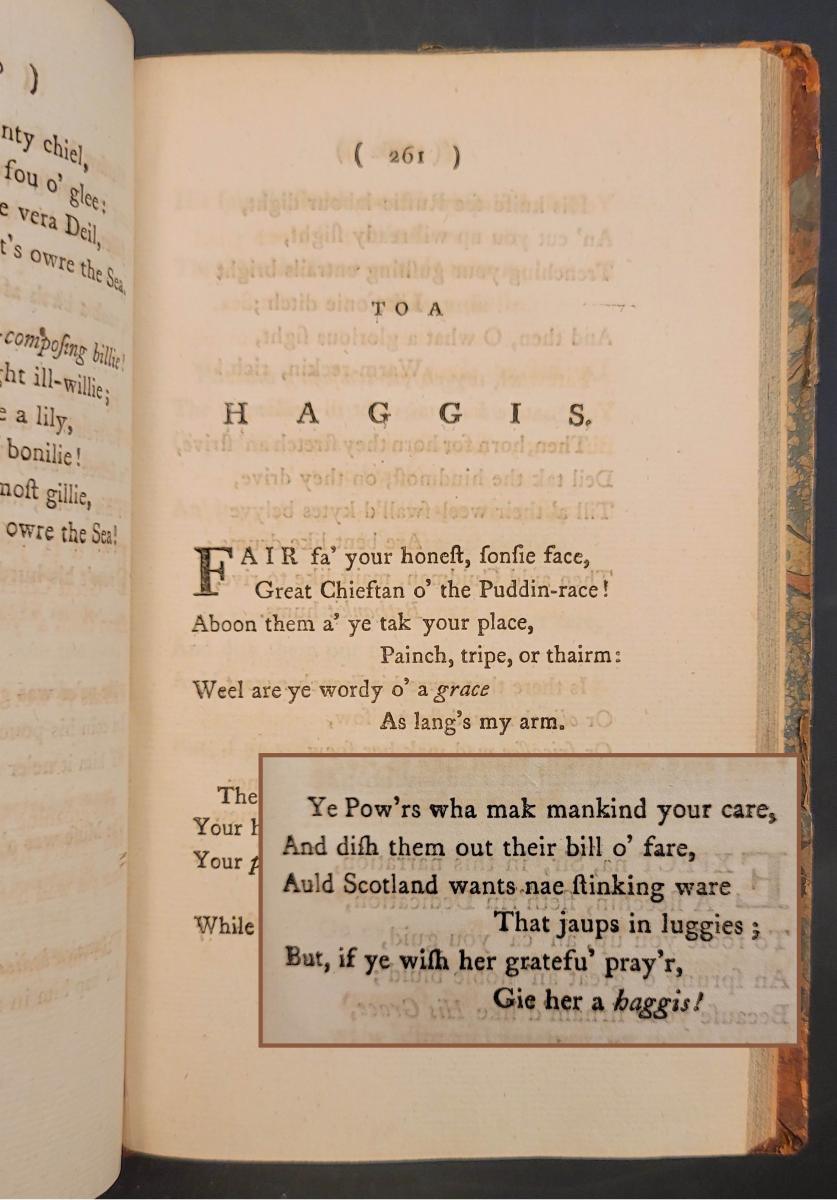
We New Yorkers can make our own mini-Ayrshire pilgrimage by visiting the idealized statue of Burns in Central Park's Literary Walk, as I did on a sunny winter day while writing this post.
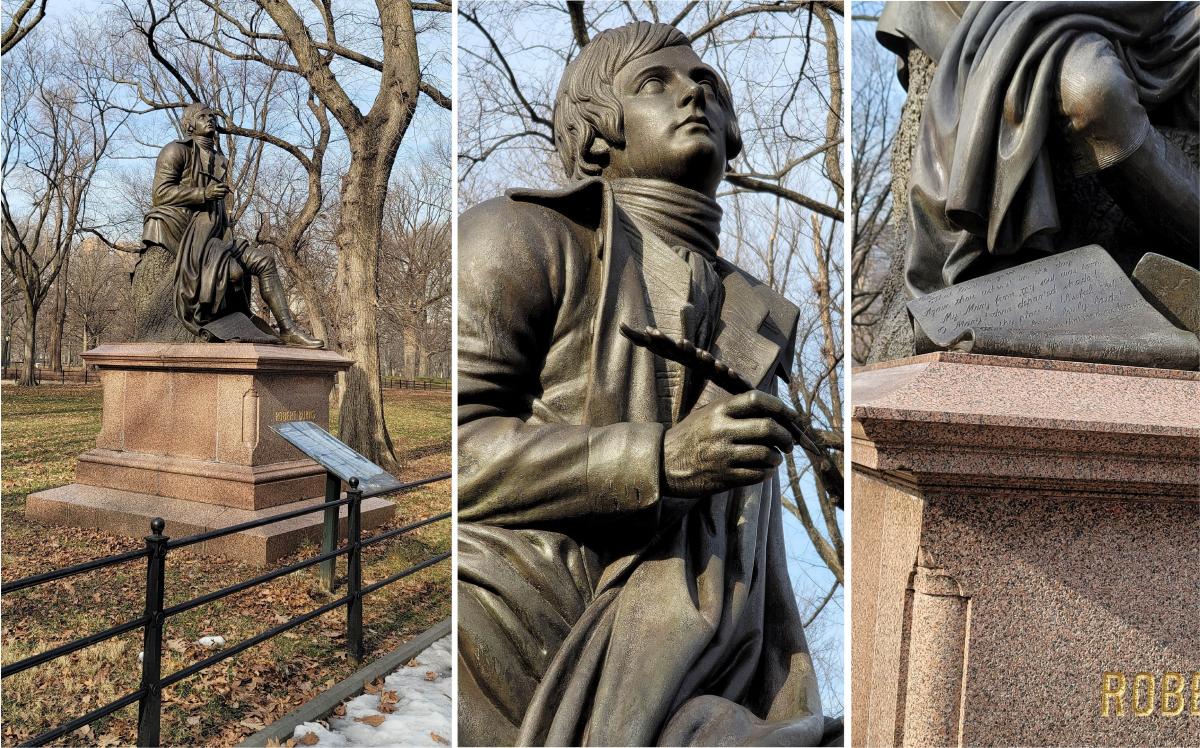
Our stacks also contain a pamphlet about the statue's restoration. The text on the sculpted scroll comes from "To Mary In Heaven," and the whole poem can be found in various collections, and here.
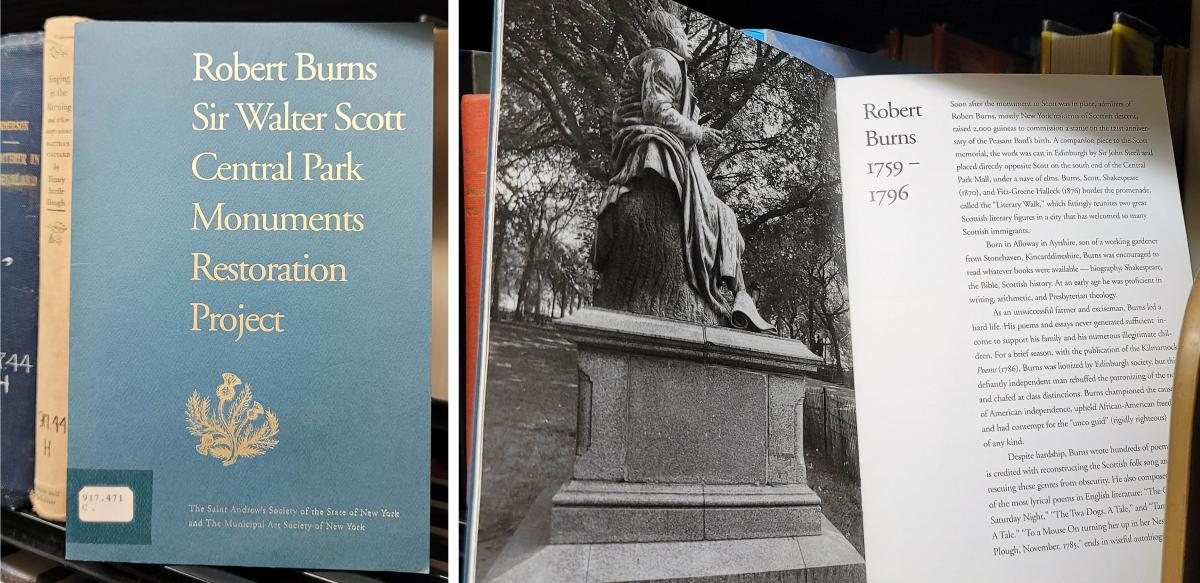
If you're now wanting more of Burns' context and leid (language), I highly recommend Billy Kay's Scots: The Mither Tongue, a fascinating history of Scots, its literary treasures, and the politics of its survival.
Cheers for a guid Burns Nicht, ane an aw!
Have a favorite Burns poem or book to recommend? Spot an innocent error in this post? Email me.
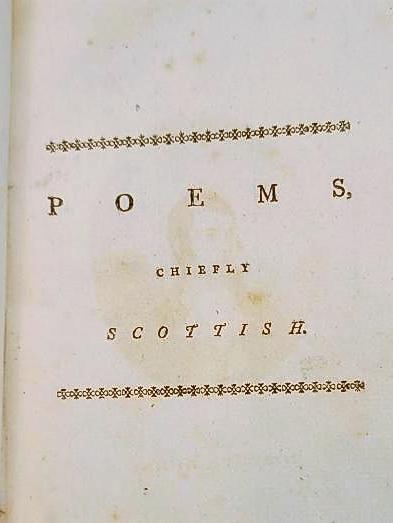

Disqus Comments